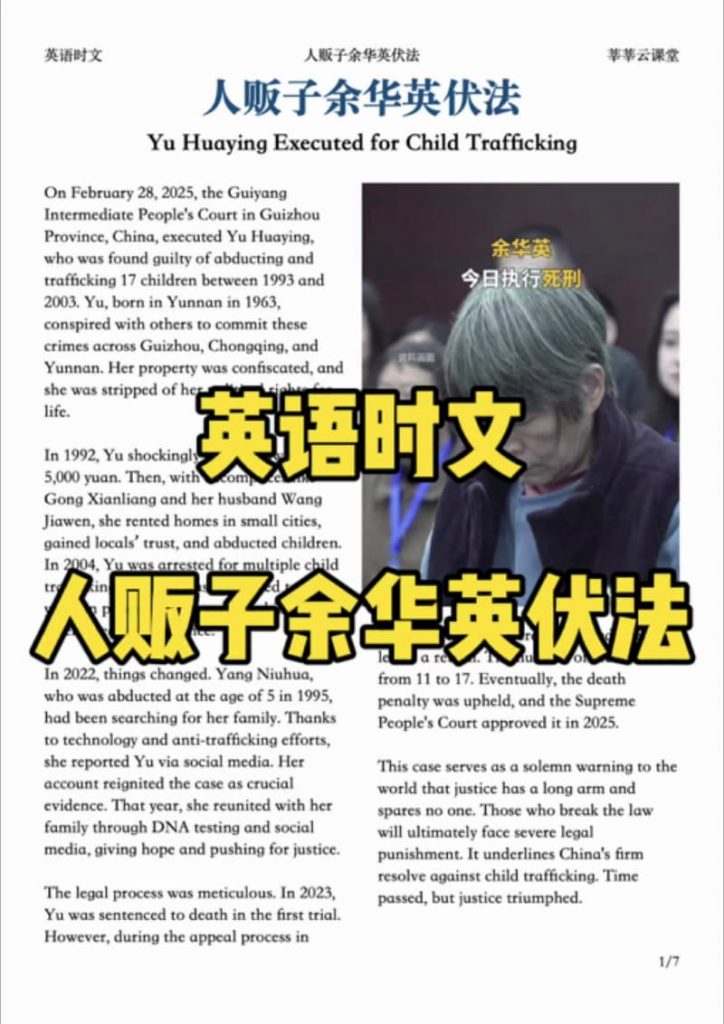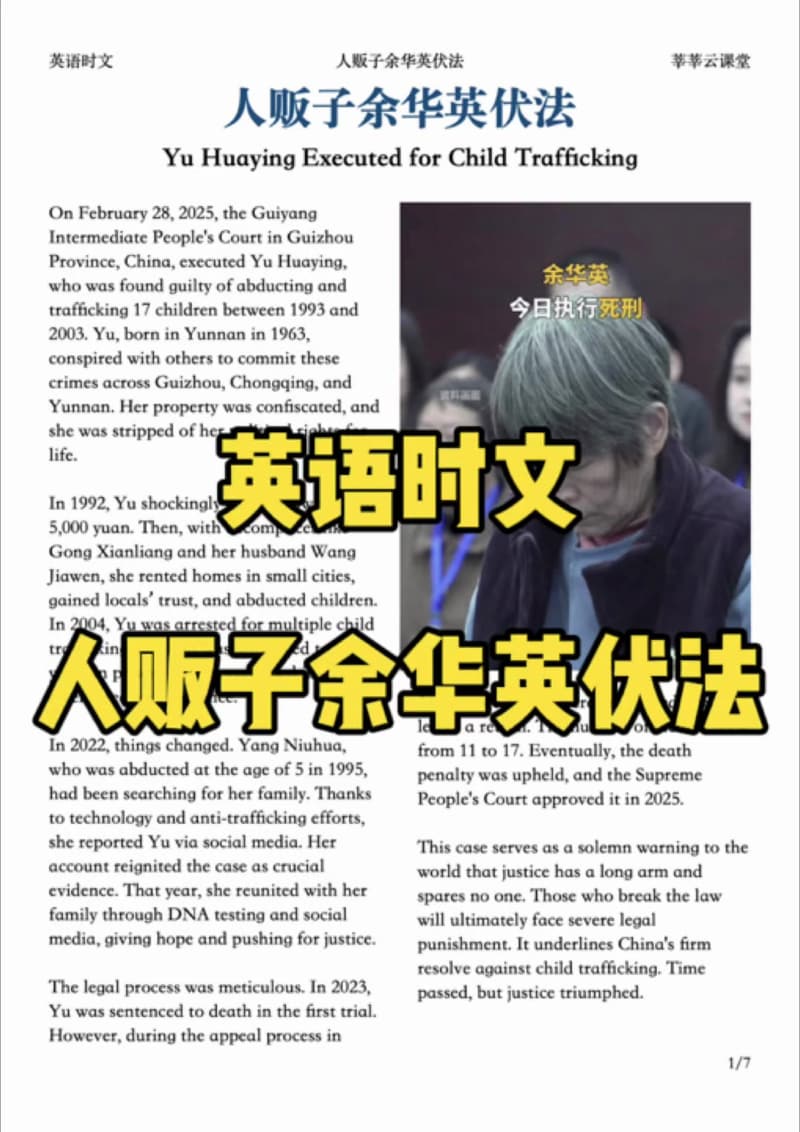
On February 28, 2025, the Guiyang Intermediate People’s Court in Guizhou Province, China, executed Yu Huaying, who was found guilty of abducting and trafficking 17 children between 1993 and 2003. Yu, born in Yunnan in 1963, conspired with others to commit these crimes across Guizhou, Chongqing, and Yunnan. Her property was confiscated, and she was stripped of her political rights for life.
In 1992, Yu shockingly sold her own son for 5,000 yuan. Then, with accomplices like Gong Xianliang and her husband Wang Jiawen, she rented homes in small cities, gained locals’ trust, and abducted children. In 2004, Yu was arrested for multiple child trafficking acts and was sentenced to 8 years in prison. She was released in 2009 after a reduced sentence.
In 2022, things changed. Yang Niuhua, who was abducted at the age of 5 in 1995, had been searching for her family. Thanks to technology and anti-trafficking efforts, she reported Yu via social media. Her account reignited the case as crucial evidence. That year, she reunited with her family through DNA testing and social media, giving hope and pushing for justice.
The legal process was meticulous. In 2023, Yu was sentenced to death in the first trial. However, during the appeal process in 2023, more crimes were uncovered, which led to a retrial. The number of victims grew from 11 to 17. Eventually, the death penalty was upheld, and the Supreme People’s Court approved it in 2025.
This case serves as a solemn warning to the world that justice has a long arm and spares no one. Those who break the law will ultimately face severe legal punishment. It underlines China’s firm resolve against child trafficking. Time passed, but justice triumphed.
当前主题涵盖如下题型
- 阅读理解题
- 完形填空题






